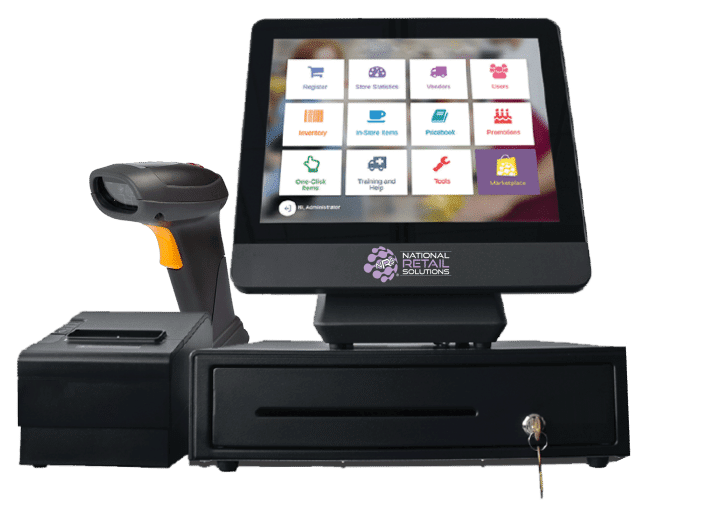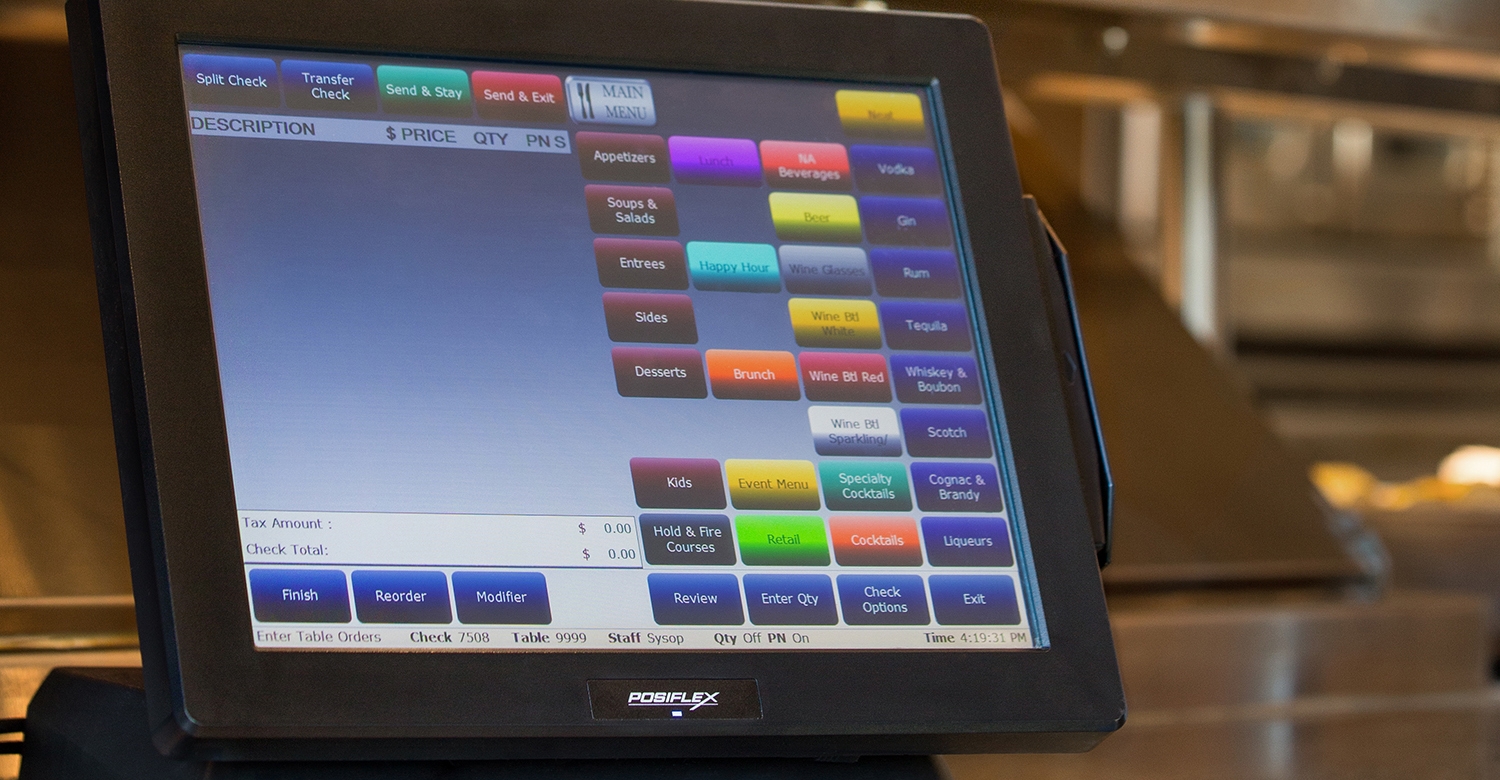8 Easy Facts About Restaurant Pos Explained

POS Systems: Retail Point-Of-Sale Solutions Streamline Transactions
Pos - Questions

Hardware Components of a Point of website Sale System What makes a POS system tick? It's not simply software; the hardware plays a starring function. Consider it as the body to the software application's brain. Without the ideal hardware, even the most sophisticated POS software application is just a pretty face. Vital POS Hardware So, what are the must-haves? Let's simplify. The central processing system, frequently a computer system or tablet, is the heart of the operation. The screen or touchscreen display enables staff to connect with the system. A barcode scanner accelerate the checkout procedure. Keep in mind the days of manually entering each code? The dependable invoice printer supplies consumers with a record of their purchase. A money drawer keeps your money safe and organized. A card reader enables clients to pay with credit or debit cards. Diving Deeper: Beyond the Basics However wait, there's more! Depending upon your business, you may need specialized hardware. For instance, a dining establishment may integrate cooking area printers to relay orders, while a retailer might utilize label printers for product tagging. Ever wonder how your regional bakery quickly prints those delicious-looking labels? Selecting the Right Hardware: A Balancing Act Picking the right hardware isn't just about buying the most pricey equipment. It's about finding the sweet area between functionality, sturdiness, and budget. A small company just beginning out might go with a more basic setup, while a high-volume merchant will require robust, high-performance devices. Is it much better to buy new or utilized? Consider your alternatives thoroughly. A brand-new system uses the latest innovation and warranty security, but a refurbished system can save you money. The Future of POS Hardware What does the future hold? Expect to see a lot more combination with mobile phones, biometric scanners for employee authentication, and advanced analytics control panels displayed on bigger, clearer screens. Envision a world where inventory is automatically updated in real-time as products are scanned-- a world where you can track your best-selling product from throughout the world. The possibilities are limitless, and the hardware is continuously evolving to meet the demands these days's companies. Are you ready to update your point of sale system?
Software Characteristics and Capabilities: The Heart of Your POS System
Ever enjoy an experienced barista move through a busy early morning rush? Their secret isn't just caffeine; it's a smooth dance with their POS system. The software is the conductor of your business symphony, managing whatever from sales to stock. But what notes should you be listening for? What abilities truly matter in today's market?
Inventory Management: Beyond Counting Beans
Forget spreadsheets that haunt your dreams. Modern POS systems provide real-time stock tracking, alerting you when your stock of artisanal coffee beans dips precariously low. Think about it as a digital guardian angel, preventing those uncomfortable "Sorry, we're out!" moments to consumers. What if you could likewise forecast demand based upon historic data? Numerous systems now provide forecasting tools, a powerful weapon versus overstocking and lost sales. This assists prevent the circumstance of lacking popular products or building up excess stock of slow-moving items, both of which can constrain capital and area.
Sales Reporting and Analytics: Deciphering the Data
Sales data is the new gold, and your POS system is the miner. Forget just knowing just how much you sold today. Dive deep into the data to uncover patterns, determine your best-selling products, and comprehend client behavior. Which menu item pairs perfectly with the everyday special? Which promo resonated most with your customers? These insights are not just interesting; they're actionable intelligence. Without trustworthy sales reporting, navigating the intricacies of organization decision-making becomes like sailing without a compass, increasing the opportunity of errors and missed opportunities.
Consumer Relationship Management (CRM): Building Bridges, Not Walls
Remembering a regular client's name and preferred order is captivating, however scaling that individual touch is difficult. POS systems with CRM capabilities enable you to track consumer purchase history, preferences, and even birthdays. Envision automatically offering a discount rate on their birthday-- a small gesture that cultivates loyalty and motivates repeat service. There is the potential snag of poor data quality, which can lead to inaccurate customer profiles and ineffective marketing efforts.
Payment Processing: Streamlining the Deal
The checkout experience can make or break a sale. Seamless integration with various payment methods-- charge card, mobile wallets, even copyright-- is non-negotiable. Can your system manage split payments? Does it offer safe and secure tokenization to secure customer information? A cumbersome payment process is like striking a sour note in your company symphony, potentially interfering with the whole efficiency. Making sure compatibility with evolving payment innovations and adherence to security requirements are vital for preserving customer trust and operational performance.
Staff Member Management: Keeping the Team in Sync
From clocking in and out to handling consents and tracking performance, staff member management features simplify operations and enhance accountability. Is scheduling a nightmare? Lots of POS systems use integrated scheduling tools, enhancing staffing levels based upon predicted need. A typical barrier that is often overlooked is the obstacle of integrating staff member management functionalities with payroll systems, which can lead to errors and inadequacies in wage estimations.
Advanced Characteristics: Leveling Up Your Operations
- Table Management: Perfect for dining establishments, this feature enables you to envision your dining room, track table status, and manage appointments.
- Commitment Programs: Reward your finest customers and encourage repeat business with incorporated loyalty programs.
- Online Purchasing Integration: Perfectly incorporate your POS system with online purchasing platforms to expand your reach.
Selecting the best POS system has to do with more than simply performance; it has to do with discovering a partner that can grow with your service. Consider your existing requirements, prepare for future development, and do not hesitate to ask the tough questions. The ideal software can change your company from a disorderly cacophony into an unified masterpiece.
Industry-Specific POS System Applications
Think about the regional bakery, busy with morning clients yearning fresh croissants. A generic POS system might handle transactions, but can it handle complicated recipes, track active ingredient inventory, or automatically change production schedules based upon sales data? Most likely not. That is where the beauty of industry-specific POS systems shines.
Dining establishments and Hospitality
For dynamic restaurants, speed and accuracy are paramount. How many times have you seen servers juggling orders, adjustments, and splitting expenses, all while attempting to provide outstanding service? A restaurant POS system streamlines these procedures, allowing for table management, kitchen order tickets, and even online ordering integration. These systems often consist of functions like ingredient-level inventory tracking, crucial for handling food expenses and reducing waste. Ever wonder why your preferred meal is in some cases not available? It may originate from an absence of proper inventory management.
- Table Management
- Kitchen Order Tickets
- Online Ordering Combination
- Ingredient-Level Stock Tracking
Retail Solutions
Retail, with its varied inventory and consumer interactions, demands a various set of tools. Envision a boutique clothing store having a hard time to monitor sizes, colors, and seasonal collections using a basic checkout system. An industry-specific retail POS system provides functions like barcode scanning, customer loyalty programs, and detailed sales reporting. These systems can even integrate with e-commerce platforms, supplying a seamless omnichannel experience for consumers. Did you understand some retail POS systems can predict future sales trends based on historic information? Now that is effective!
The Dangers of a Mismatch
Selecting the incorrect POS system can develop substantial functional difficulties. A clothes store using a dining establishment POS, for instance, would discover it unsuitable for managing inventory with sizes and colors. The lack of correct reporting and analytics might result in misinformed buying decisions and lost income. The result might be similar to trying to fit a square peg in a round hole.
Key Considerations
Choosing an industry-specific POS system requires cautious assessment. Believe about your organization's distinct needs and operational workflows. Does the system integrate with existing software application? Does it offer the needed reporting capabilities? Is it scalable to accommodate future development? A well-chosen POS system is not simply a transaction tool; it's a strategic property that can drive efficiency, improve customer satisfaction, and eventually, improve your bottom line. Keep in mind, it is a financial investment in your business's future, not simply a cost.
Security Considerations for Point of Sale Systems
Ever heard the tale of the mom-and-pop shop that lost whatever due to the fact that of a single, neglected security defect in their POS system!.?. !? It's a cautionary tale, and it highlights a critical element typically overshadowed by the attraction of fancy features and streamlined operations. The truth is, a POS system is only as great as its security. What good is a system that crunches numbers in a flash if it enables crooks to swipe consumer's data just as rapidly?
The Vulnerability Minefield
The digital landscape is a battlefield. Every POS system, regardless of size or sophistication, is a potential target. Are you genuinely prepared for the threats prowling around the corner? The genuine pinch comes when you discover that your out-of-date software has an open hole that hackers can exploit, turning your service into an unwitting accomplice in identity theft. The difficulty is that hackers are crafty and are constantly changing their strategies.
Common Security Gaps and Professional Tips
- Weak Passwords: "Password123" isn't sufficing. Usage strong, special passwords for all POS system accounts and alter them regularly. Two-factor authentication is a must.
- Unsecured Networks: Your Wi-Fi is like leaving the front door open. Secure your network with strong encryption (WPA3 if possible) and consider a different network for your POS system.
- Out-of-date Software Application: Software application suppliers patch security holes all the time. Failing to update is like welcoming trouble. Establish automatic updates or schedule regular upkeep.
- Employee Training: Your personnel is your first line of defense. Train them to recognize phishing attempts, safeguard passwords, and report suspicious activity.
Information File Encryption: Your Shield Versus the Dark Arts
Think about data encryption as a secret code. It scrambles delicate info, like charge card numbers, making it unreadable to unauthorized users. Without file encryption, your clients' monetary information resemble sitting ducks, ripe for the picking by cybercriminals. It's not almost securing your consumers; it's about protecting your credibility and preventing large fines.
PCI Compliance: The Rulebook You Can't Disregard
If you accept credit cards, you're bound by the Payment Card Industry Data Security Standard (PCI DSS) It's a set of security requirements designed to protect cardholder information. Failing to comply can lead to fines, penalties, and even the loss of your ability to process credit card payments. It's a headache, yes, however it's a needed one. Consider PCI compliance as the expense of doing business in the digital age.
Consider this: every transaction processed through your point of sale is a prospective entry point for malicious actors. By executing robust security procedures, you're not simply protecting your company; you're protecting your clients' trust and guaranteeing the long-term practicality of your operations. The security of your POS system isn't just a technical concern; it's a service essential. It requires continuous caution, proactive measures, and a dedication to remaining ahead of the curve.